Democratic Senator Manchin Says He Is ‘Very Leery’ Of Talks With Iran
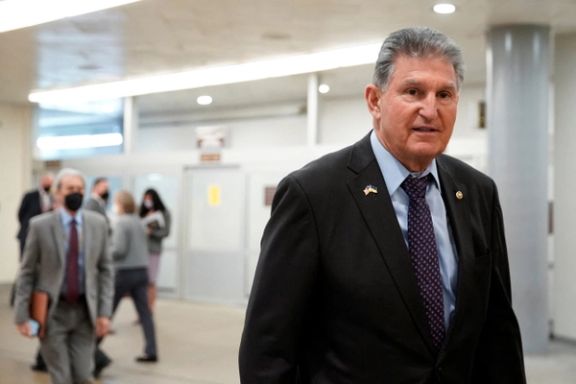
Opposition against a nuclear deal with Iran is growing among US lawmakers with Democratic Senator Joe Manchin saying he is “very leery” of the ongoing talks.

Opposition against a nuclear deal with Iran is growing among US lawmakers with Democratic Senator Joe Manchin saying he is “very leery” of the ongoing talks.
“I wasn’t for it before and I can’t see myself changing my position”, Manchin of West Virginia told Jewish Insider on Wednesday.
He was one of four Democratic senators — along with Bob Menendez (New Jersey), Ben Cardin (Maryland) and Senate Majority Leader Chuck Schumer (New York) — who voted against the original nuclear agreement between Tehran and world powers in 2015.
Also on Wednesday, New York Democratic Representative Thomas Suozzi expressed concerns “that any wrong move may wrongfully empower Iran, put Israel and the region at risk, and further heighten international tensions”.
Calling Iran “a bad actor” that “cannot be trusted”, Suozzi noted that “If any negotiations continue to move forward, we must ensure that Iran is blocked from purveying its malfeasance throughout the region and the world”.
Earlier in the day in Washington, a group of House Democrats held a news conference marking the first anniversary of the start of the Vienna talks to express concern over the US administration’s efforts to reach a new deal with Tehran.
Almost all Senate Republicans and many in the House have criticized the Biden administration for its pursuit of a new accord, and Democrats have recently joined the opposition.
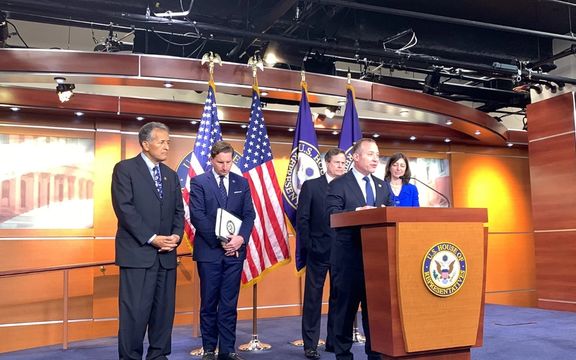
A group of US House Democrats expressed concerns Wednesday in Washington over the Biden Administration efforts to reach a new nuclear deal with Iran.
Led by Democratic Reps. Josh Gottheimer of New Jersey and Elaine Luria of Virginia, the group representing 18 Democrats held a news conference on the one-year anniversary of the start of negotiations in Vienna to revive the 2015 nuclear deal between Tehran and world powers.
The lawmakers said Washington should not enter into a bad deal that allows Iran to continue its terrorist activities across the region and fails to prevent the Islamic Republic from ever obtaining a nuclear weapon.
Almost all Senate Republicans and many in the House have criticized the administration for its pursuit of a new deal with Iran, but Democrats have joined the opposition more recently.
Congresswoman Luria said, "I have serious concerns about reports that Vienna Talks are discussing the lifting of sanctions designed not just to address Iran's... nuclear activities, but even addressing the sponsorship of terrorism", adding that “we cannot afford another failed deal".
“We understand that while the recent negotiations have not concluded, we feel that we can't stay quiet about the unacceptable and deeply troubling turn that these talks have reportedly taken”, she said referring to Iran’s demands to remove the IRGC for the US list of foreign terrorist organizations.
“I believe it's completely unacceptable that it would be considered as part of this negotiation to lift Iran's Foreign Terrorist Organization designation on Iran's Revolutionary Guard Corp, it's completely unacceptable to eliminate sanctions on the leadership of the Iranian regime, which has perpetuated terrorist attacks around the world…and has sought to destabilize the Middle East” she added.
Rep. Gottheimer noted that “if Iran has proven anything, it’s that they can’t be trusted", adding that it is critical the US does not cater to Iran's demands.
He further underlined that "we need a longer and stronger deal, not one that is shorter and weaker. It's time to stand strong against terrorists, protect American values and our allies."
He added that the worst case scenario is “a nuclear Iran, regardless of what commitments are made, funding Hezbollah, Hamas -- through these giving billions of dollars to fund terror around the world to kill Americans, to attack our bases, and of course, to kill our allies”.
He also questioned the role of Russia to keep tab on Iran, asking that "are we seriously going to let a war criminal — Vladimir Putin — be the guarantor of this deal?”
California’s Juan Vargas criticized the Biden administration for keeping Congress in the "dark", saying, “I don’t know exactly what’s in this deal. I can't tell you as they haven't allowed us to look at it”.
"It's a little bit like last time. They keep us in the dark. Then… it turns out there are some fatal flaws. It was a bad deal then, and it's a bad deal now”, he added.
Voicing his suspicion and reservations on the potential deal, Congressman Donald Norcross -- from New Jersey's 1st congressional district -- noted that "all we're doing, in my opinion, is delaying the time it takes Iran to get nuclear weapons."
Minnesota’s Representative Dean Phillips said, “We are not opposed to an agreement. We are opposed to an agreement that doesn't absolutely, positively prevent Iran from either producing or obtaining a nuclear weapon and doesn't end their regime of terror.”
In interview with MSNBC on Wednesday, Secretary of State Antony Blinken answering a direct question said IRGC is a terrorist organization. “I would say simply that I’m not overly optimistic at the prospects of actually getting an agreement to conclusion, despite all the efforts we put into it, and despite the fact that our security would be better off. We’re not there… and time is getting extremely short”.

US Secretary of State Antony Blinken told NBC News Wednesday in Brussels he is “not overly optimistic about actually getting an agreement,” in Iran nuclear talks.
Blinken added he believes “it would be in the best interests of our country if we can get back into compliance” with the 2015 Iran nuclear deal “if Iran will do the same.”
Efforts to revive the agreement, which former president Donald Trump abandoned in 2018 prompting Iran to expand its nuclear program, are currently paused. Talks in Vienna have struggled to agree which US sanctions, vastly extended by Trump, violated the agreement and exactly how Iran’s nuclear program, expanded since 2019, should be returned to the limits of the deal, the JCPOA (Joint Comprehensive Plan of Action).
Blinken stressed Washington’s cooperation with France, Germany, and the United Kingdom, without mentioning China and Russia, also JCPOA signatories and part of the Vienna process.
Asked if Iran’s Revolutionary Guards were a “terrorist organization,” Blinken replied “they are,” but then added he was “not going to get into the details of where we are in the negotiations.” One point reportedly at issue in the Vienna talks is whether the IRGC should be removed from the US list of ‘foreign terrorist organizations,’ where they were placed by Trump in 2019 after introducing ‘maximum pressure’ sanctions. The IRGC are the only example of any state’s armed forces designated in this way and are subject to other US sanctions.
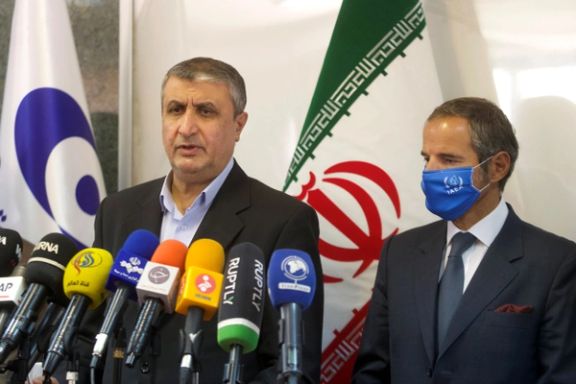
Iran has moved equipment used to make components for enriching uranium from the workshop at Karaj, just west of Tehran, to Natanz, the IAEA said Wednesday.
The IAEA reported that the equipment − used to make parts for centrifuges, which enrich uranium − “remained under Agency seal at this location in Natanz and, therefore, were not operating.” Six weeks ago, Iran set up a plant to make parts at Esfahan, another nuclear facility, a move reported to the IAEA in January.
The IAEA (International Atomic Energy Agency), the United Nations nuclear watchdog, had its access to Iran’s atomic program reduced in early 2021. Iran in December agreed to the installation of new cameras at Karaj, after an apparent attack June 2021 widely attributed to Israel. Iran’s security review at the site had threatened a temporary arrangement over monitoring equipment agreed by Iran and the agency in February.
In another area closely followed by the agency, Iran’s nuclear chief Mohammed Eslami said Wednesday that Iran had passed documents to the IAEA related to uranium traces in three sites used before 2003.
Iran and the agency in March agreed a plan to resolve controversy over the traces, which many analysts believe resulted from equipment supplied by Pakistani nuclear scientist AQ Khan. Iran was due to supply answers and evidence by late March, with outstanding questions resolved by June 20.
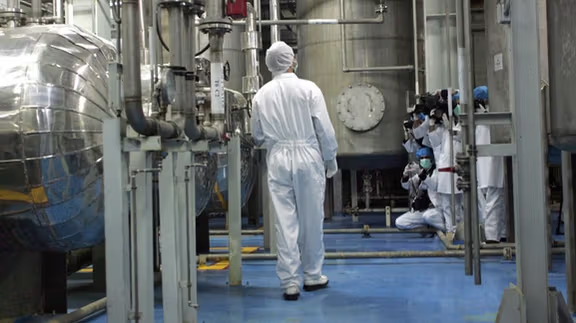
"We have handed over the documents on March 20 to the agency,” Eslami told a televised news conference. “They are reviewing those documents and probably the agency's representatives will travel to Iran for further talks, and then the IAEA will present its conclusion.”
While the IAEA is not directly involved in Vienna talks between Iran and world powers aimed at reviving the 2015 Iran nuclear deal, it would monitor a revived deal and IAEA chief Rafael Mariano Grossi has made clear the agency would be better placed to access Iran’s nuclear program under powers conferred by the 2015 agreement, the JCPOA (Joint Comprehensive Plan of Action). Grossi said last month he would report on Iran’s answers over the pre-2003 nuclear work to a Board of Governors' meeting beginning June 6.
New complications
With delays in the nuclear talks, both with new complications over with sanctions against Russia and disagreements between the US and Iran, JCPOA opponents in both Washington and Tehran have stepped up their efforts.
Tasnim news agency reported Tuesday that 190 Iran parliamentarians had written to President Ebrahim Raisi urging Iran’s “red lines” and national interest to be upheld. In Washington, Democrat Congressman Josh Gottheimer, among 15 Democrats holding a press conference Wednesday criticizing the Vienna talks, tweeted: “are we seriously going to let a war criminal– Vladimir Putin – be the guarantor of this deal?”
Russia was one of six world powers that signed the JCPOA in 2015. Former president Donald Trump withdrew from the agreement in 2018 and imposed ‘maximum pressure’ sanctions on Iran, which a year later began expanding its nuclear program beyond JCPOA limits. President Biden has expressed commitment to revive the JCPOA but has continued ‘maximum pressure.’
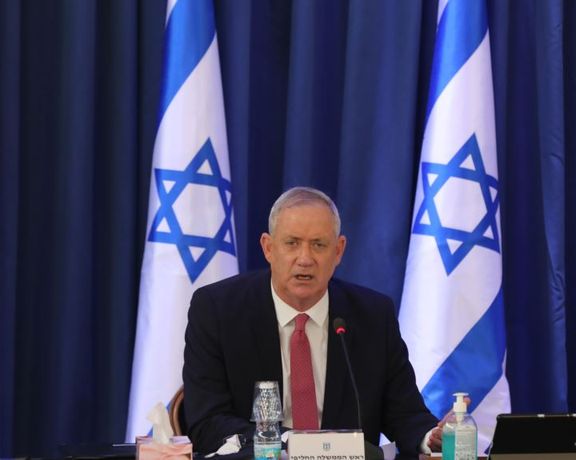
Israeli Defense Minister Benny Gantz has said Iran had increased its stock of 60-percent enriched uranium from 10 kilogram to 50 kilogram since August 2021.
In an address to dozens of foreign ambassadors on Wednesday, Gantz called for the implementation of a robust “plan B” that would include using force as well as economic and diplomatic pressure against Iran to rein in its nuclear program.
According to the minister, Tehran continues to “bury its [nuclear] means in underground hiding places and installed another cascade in Fordow”, Iran’s second most important uranium-enrichment site.
“We are in a race against time”, Gantz warned, adding that a good nuclear agreement between Tehran and world powers isn’t the one that is currently being cooked up by negotiators in Vienna.
“We want an agreement that doesn’t have an expiration date that gives Iran legitimacy to advance its nuclear program when it ends, with extensive monitoring everywhere at any time and monitoring the ballistic missiles Iran is developing”, he said.
In a Wednesday statement summarizing a confidential report to member states seen by Reuters, the UN nuclear watchdog said that Iran moved all its equipment to make centrifuge parts from its mothballed workshop at Karaj to its sprawling Natanz site. The International Atomic Energy Agency (IAEA) said its monitors had verified that “these machines remained under agency seal at this location in Natanz and, therefore, were not operating".
Earlier in the day, Iranian nuclear chief Mohammad Eslami said Iran had sent documents related to outstanding issues to the IAEA.
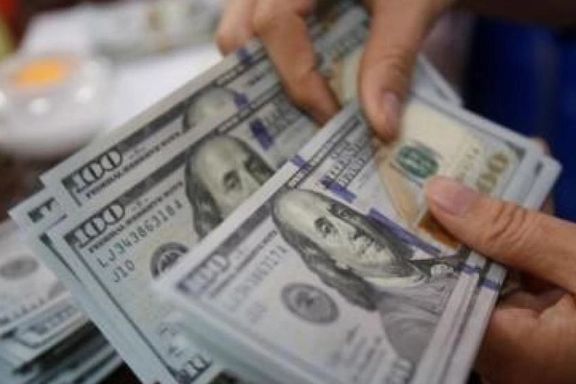
Iranian media has quoted an unnamed official as saying that a big portion of Iran’s frozen funds will be released in a deal "independent" of the nuclear talks.
An informed but unnamed source spoke about the new agreement to Iran's official news agency IRNA on Wednesday without providing further detail or any timeframe.
He said the amount is several times more than the €470-million debt recently paid by the UK in exchange for releasing two British Iranians -- Nazanon Zaghari-Ratcliffe and Anoosheh Ashuri. His reference to the hostage release deal could be an indication of a similar agreement with the US on a larger scale.
This is not the first time that “informed sources” in Iran claim that release of frozen assets is imminent.
In January, a member of the board of directors of the Iran-Iraq chamber of commerce, Hamid Hosseini, denied reports by the Iranian state-run media that Iraq had released Iran’s funds.
In December, Iran’s Foreign Ministry confirmed similar reports about Tehran accessing some of its frozen funds abroad, but no transfers took place.
The semi-official Iranian Students News Agency (ISNA) reported November 13 that Iran's assets frozen abroad -- largely for money owed for oil and energy shipments -- totaled $50 billion, with $8 billion in South Korea, $3 billion in Japan, and $6 billion in Iraq.